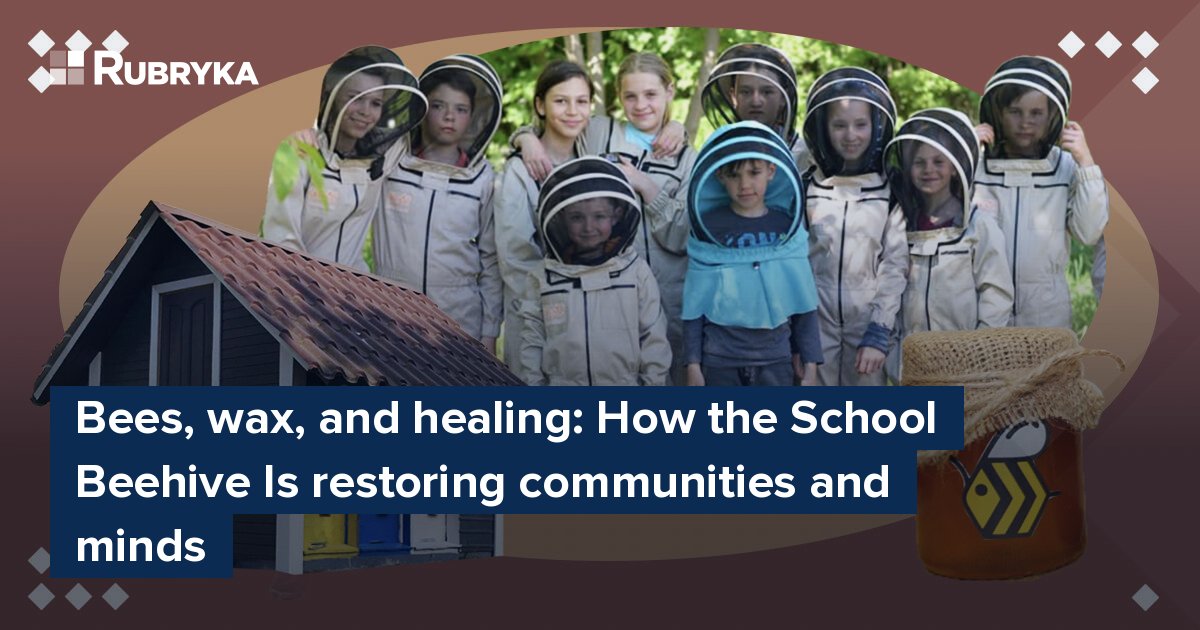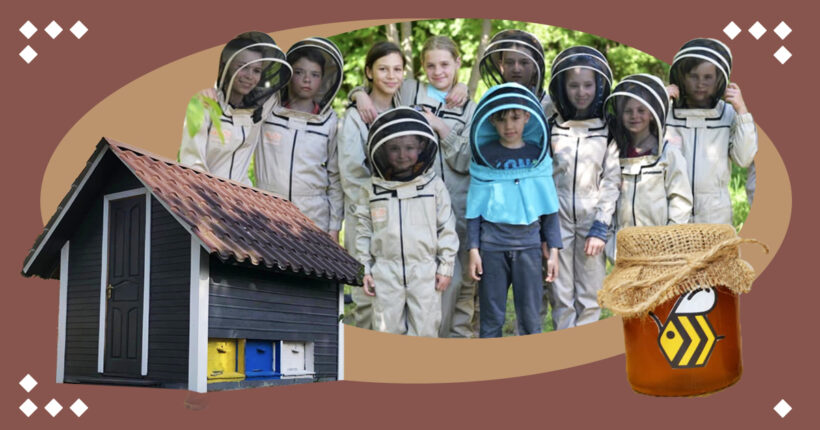
What is the problem?
How can social enterprise be combined with psychological support for the community? How can children be involved in activities? How can a school project be created that maintains continuity despite war and occupation? The answers to all these questions are found in the School Beehive—a social school enterprise that decided not to limit itself to just honey but to use its strengths to help Ukrainians recover mentally.
What is the solution?
Bees and children
Rubryka already told the story of the creation of the School Beehive even before the full-scale war. It all began in 2021 when the project to launch a social school enterprise in the form of an apiary won a competition from the Eastern Europe Foundation.
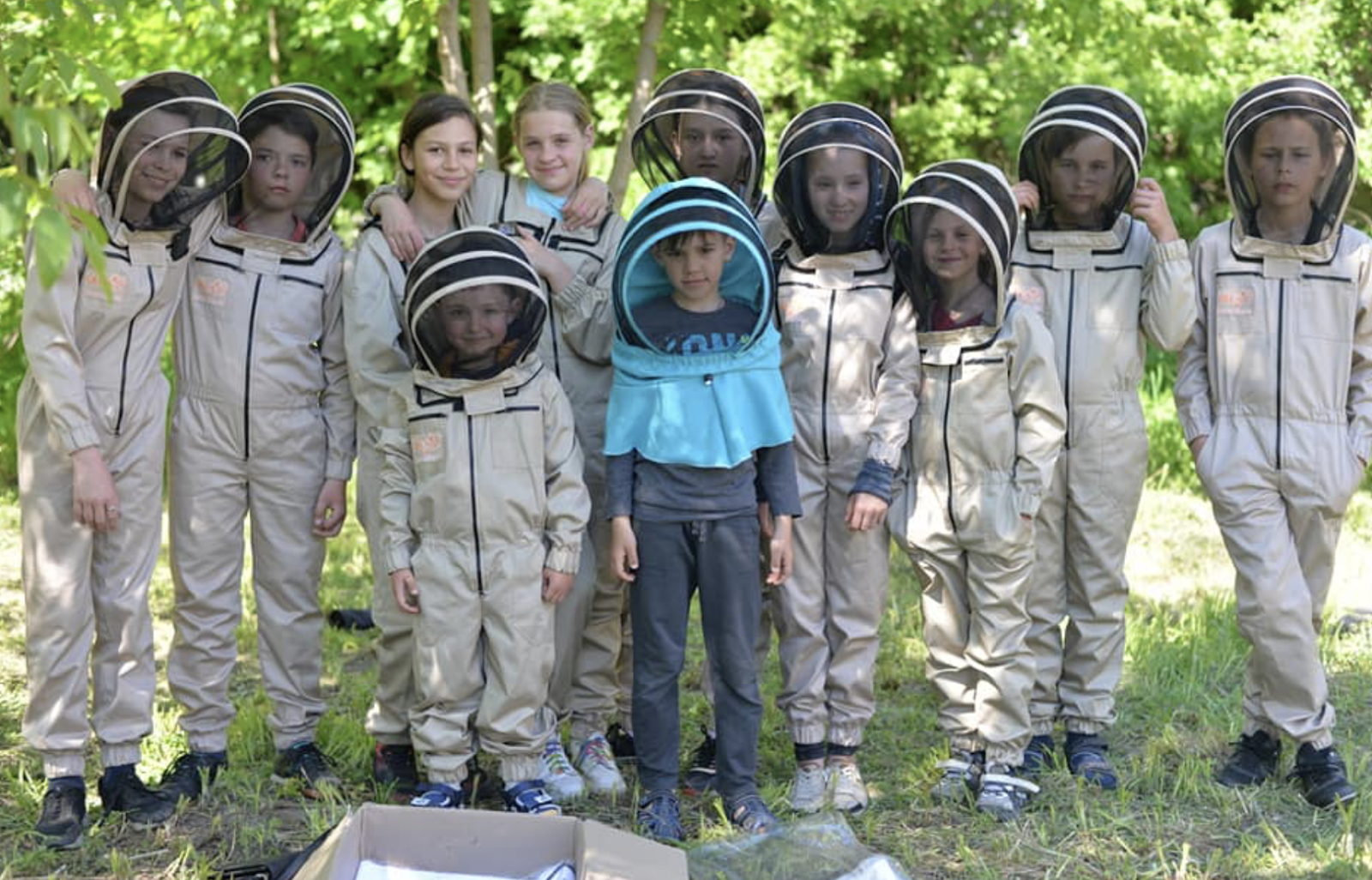
Young beekeepers. Pre-war photo from the project archive
Thus, students of the Zavorytska Gymnasium in the Kyiv region established a school apiary with the support of the NGO Our Steps and volunteers from NGO Nova Kalyta. Together, they acquired equipment and bee colonies, and once the project was fully operational, they decided to broaden their scope. The students launched a crowdfunding campaign, raising over $1,350. This amount was matched by the International Renaissance Foundation through the EU4Usociety project in cooperation with the European Union.
With the collected funds, they purchased a bee house, placing it on the grounds of the Kalytianskyi Lyceum and opening it to local residents for apitherapy sessions. However, the core of their work remained the maintenance of the apiary and the collection and sale of honey products.
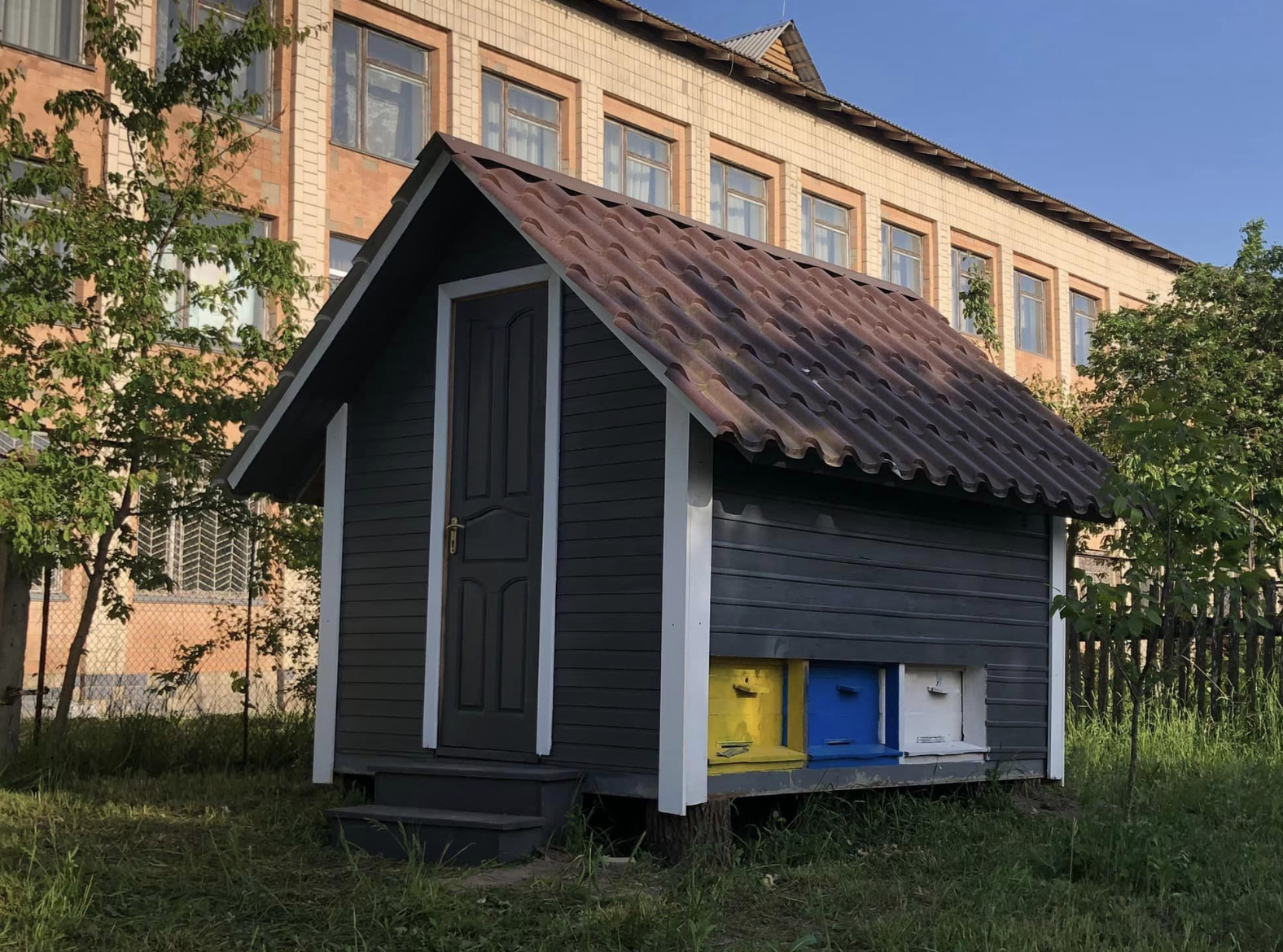
Bee house created as part of the School Beehive initiative. Photo from the project archive
Since the start of Russia's full-scale invasion, the project was put on hold. In the spring of 2022, some of the hives the children had been caring for ended up in occupied territory. Due to the dangers of war, some students and their families were forced to leave their homes. However, after the Kyiv region was liberated, the School Beehive project also revived.
"The bees themselves didn't let us stop. They require constant care—regular inspections, treatment, honey collection, and preparation for winter. The children had grown used to looking after them, so despite the war and occupation, they simply couldn't abandon their bees," says Pavlo Dubovyi, head of the NGO Nova Kalyta.
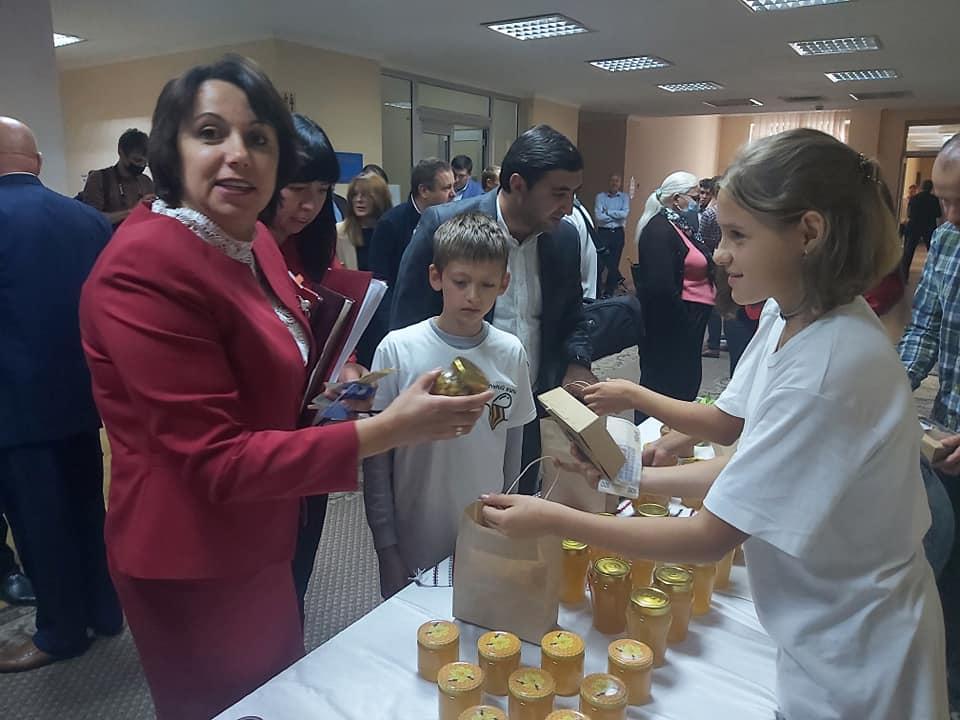
Sales of School Beehive products at the Kyiv Regional Council. Photo from the project archive
Local beekeepers also played a key role in reviving the project. For instance, Oleh Boichenko has been sharing his expertise in beekeeping with the children for over a year, teaching them about modern techniques and offering advice on how to care for the bees more efficiently. Additionally, local authorities have allocated time for a social entrepreneurship group at two educational institutions—Zavorytska Gymnasium and Kalytianskyi Lyceum.
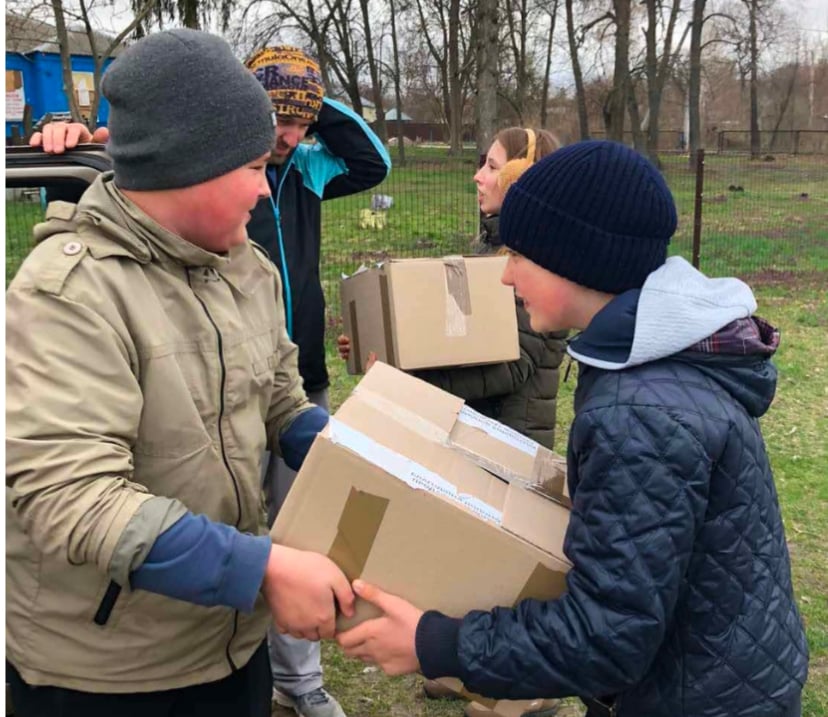
Humanitarian assistance to project participants after the liberation of the occupied territories. Photo from the project
Moreover, immediately after the liberation of the occupied territories, the project participants received support from the Eastern Europe Foundation. The foundation provided food kits to the children, and according to Dubovyi, this gesture helped strengthen their sense of unity and reminded them that the project was valued and needed.
Initially, the club members focused on mastering the basics of beekeeping and entrepreneurship. However, now they have expanded their focus to include helping Ukrainians affected by the war with their emotional recovery. This includes offering support to children of internally displaced persons (IDPs), children of fallen Ukrainian defenders, and mothers of fallen Ukrainian soldiers.
How does it work?
A hive that keeps buzzing
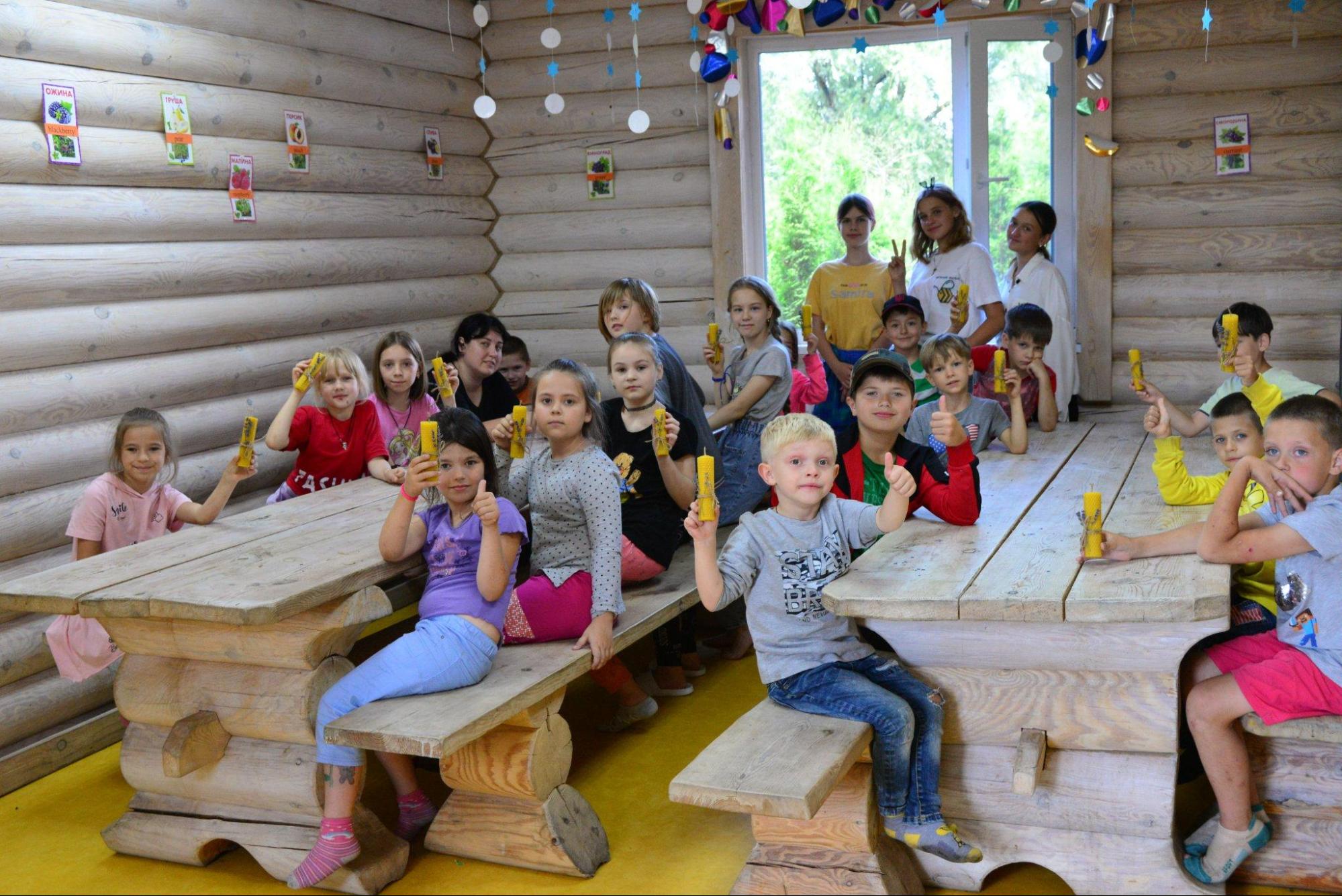
Master class for IDP children. Photo from the project archive
"During the spring of 2022, part of our community's settlements were occupied by Russian troops. We understand well the stress caused by the cannonade of shelling, the fear of the unknown, and the constant anxiety. After consulting with the children, we decided to launch a series of master classes aimed at the mental recovery of those affected," says Yevhen Zayika, head of the school's social entrepreneurship group and volunteer with Nova Kalyta.
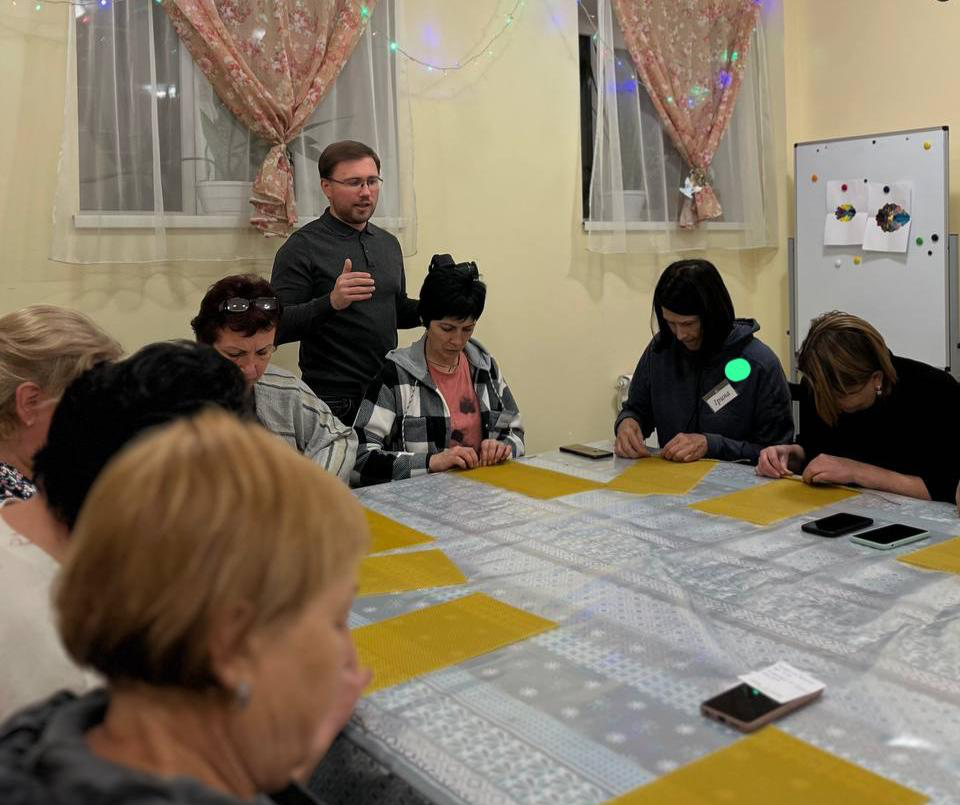
Yevhen Zaika at a master class for mothers of fallen defenders, Photo from the project archive
The main tool used in the master classes is natural beeswax, from which participants create various products such as aromatic candles, New Year and Christmas ornaments, Easter eggs, and more. The free master class lasts one hour and is structured in three stages.
1. Getting to Know Each Other: Participants introduce themselves interactively, which helps build a sense of unity and understanding that they are not alone in their experiences.
2. Meditation: Guided by student trainers, participants close their eyes, hold warm beeswax in their hands, and reflect on happy moments from their childhood. This brings them peace and inspiration.
3. Creativity: Participants craft their own products, engaging their fine motor skills and imagination. Everyone has the opportunity to bring their personal touch to the items they create.
"During the master classes, we encourage freedom of expression, allowing participants—especially children—to showcase their imagination and creativity, providing them with a chance to express themselves," says Zayika.
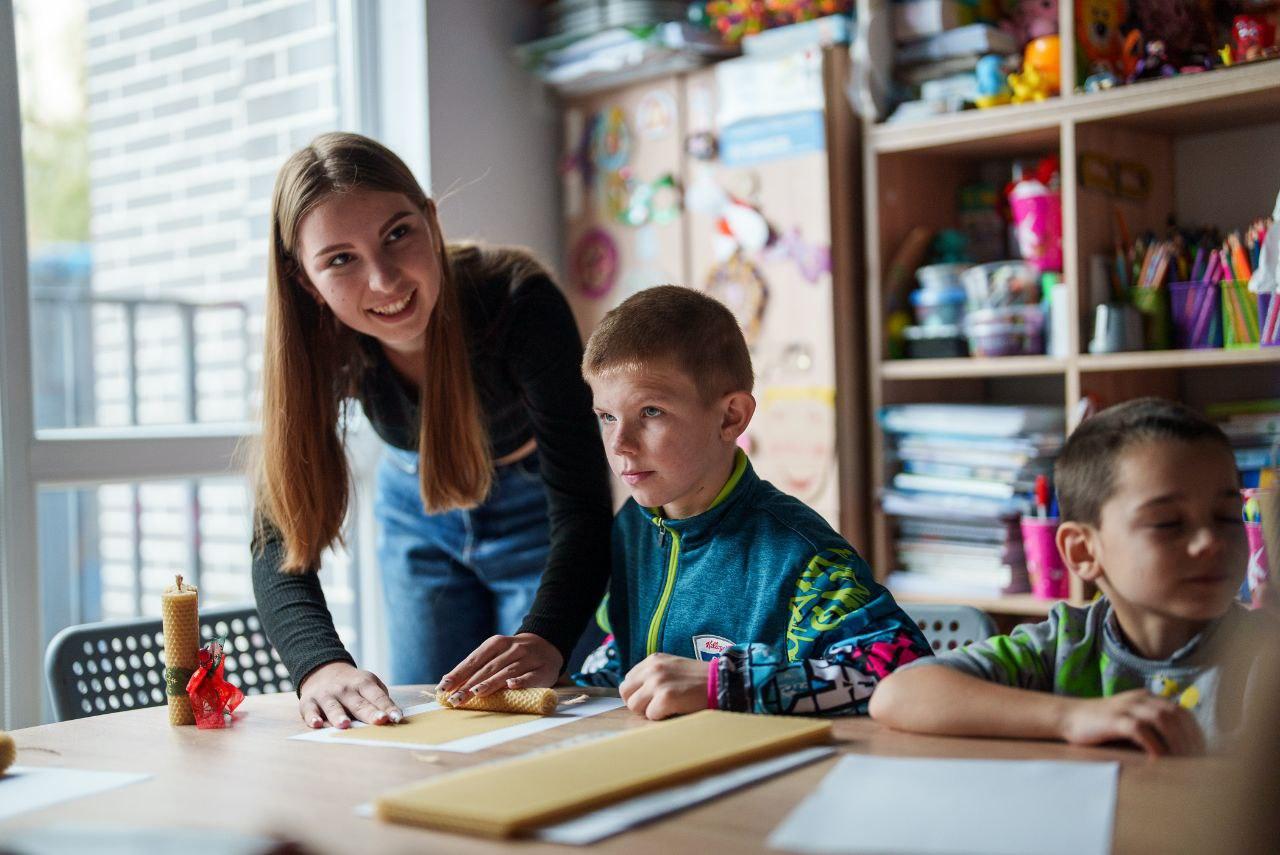
Iryna Liakh, a 9th grade student at the Kalytianskyi Lyceum, conducts a master class for IDP children. Photo from the project archive
Ninth-grader Iryna Liakh is one of the project participants. She explains that the main feature of working with beeswax is its elasticity and the rich aroma it releases when warmed by the hands. This process helps participants relax, relieve tension, and, most importantly, immerse themselves in their own creative flow and imagination.
"In our master classes, there is no concept of right or wrong, beautiful or not beautiful. The key is the process of connecting children with nature through beeswax, creating a comfortable environment where they are able and eager to create, recharge, and find new energy," says Liakh.
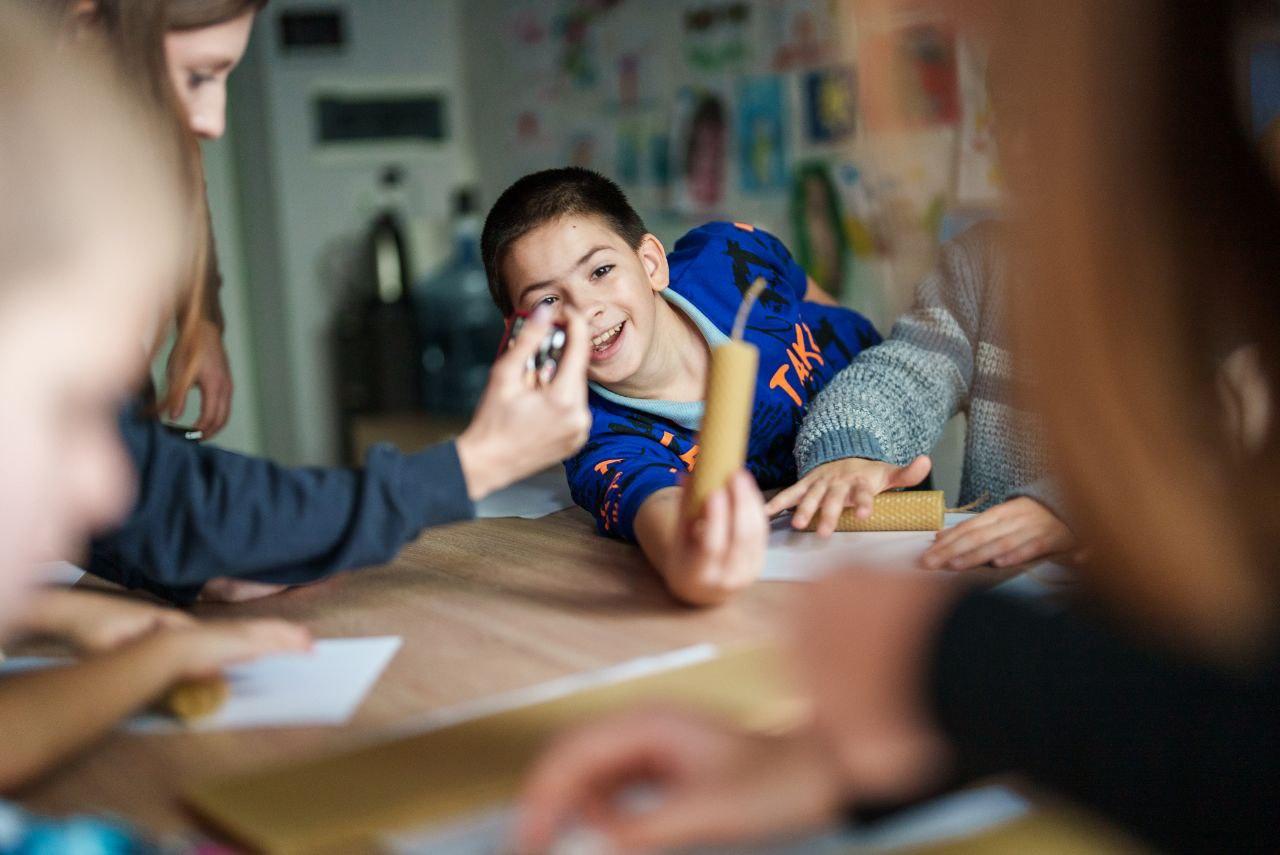
During a master class for IDP children. Photo from the project archive
Her "colleague in the hive," Kateryna Nemchenko, adds that she believes the beeswax absorbs negative emotions that a person might be experiencing. This happens through touch and breathing.
"While working with beeswax, a honey-floral aroma is released, filling the space with over 50 different natural substances and essential compounds. These act as excellent physical and mental antiseptics," Nemchenko shares her knowledge.
Teacher and volunteer of the NGO Nova Kalyta Yuliia Lakhno agrees, noting:
"After each master class, we receive feedback not only from the participants but also from the teams of specialists assisting them, including volunteers and psychologists. They all highlight the success of using beeswax because, unlike many other materials, it is entirely eco-friendly. Its aroma has a calming effect and positively impacts the strengthening of the immunity of those affected by the war—each beeswax sheet is infused with propolis."
Does it really work?
More than just candles
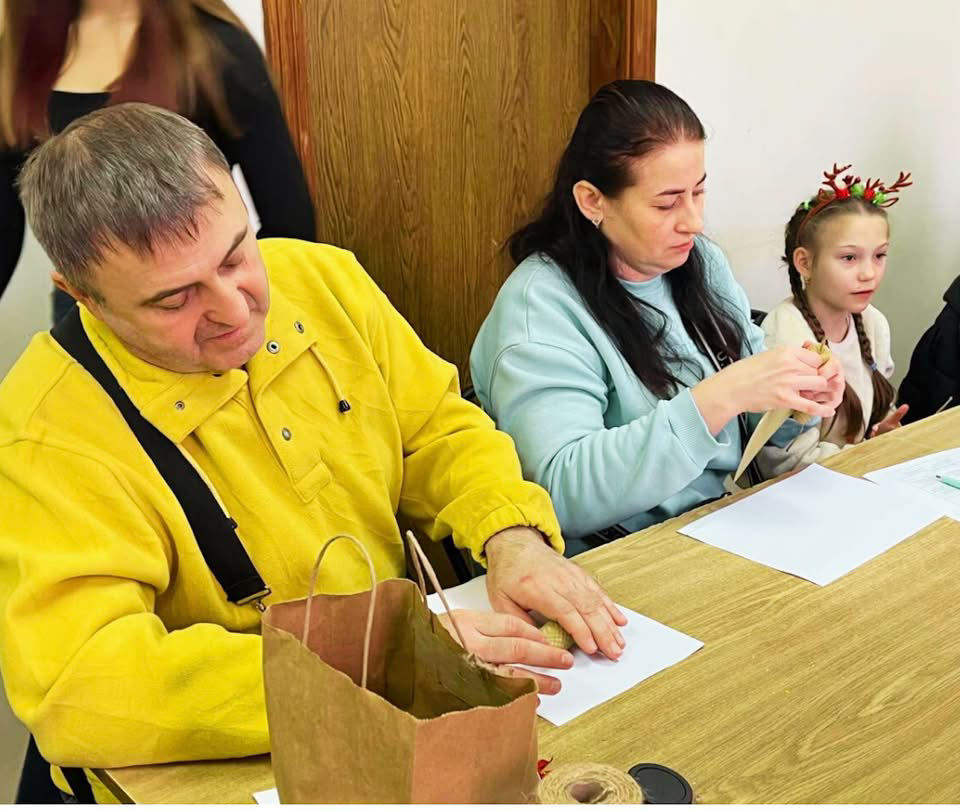
Master class for IDP families from occupied Lysychansk, the Luhansk region. Photo from the project archive
So far, the schoolchildren have already conducted dozens of master classes for children. Together with the children of deceased and missing Ukrainian defenders, they created aromatic candles and held sessions for IDP children. In total, over 200 children from Kramatorsk, Kharkiv, Zaporizhzhia, Lysychansk, Kherson, Kostyantynivka, and the liberated territories of the Kyiv region have participated in the master classes.
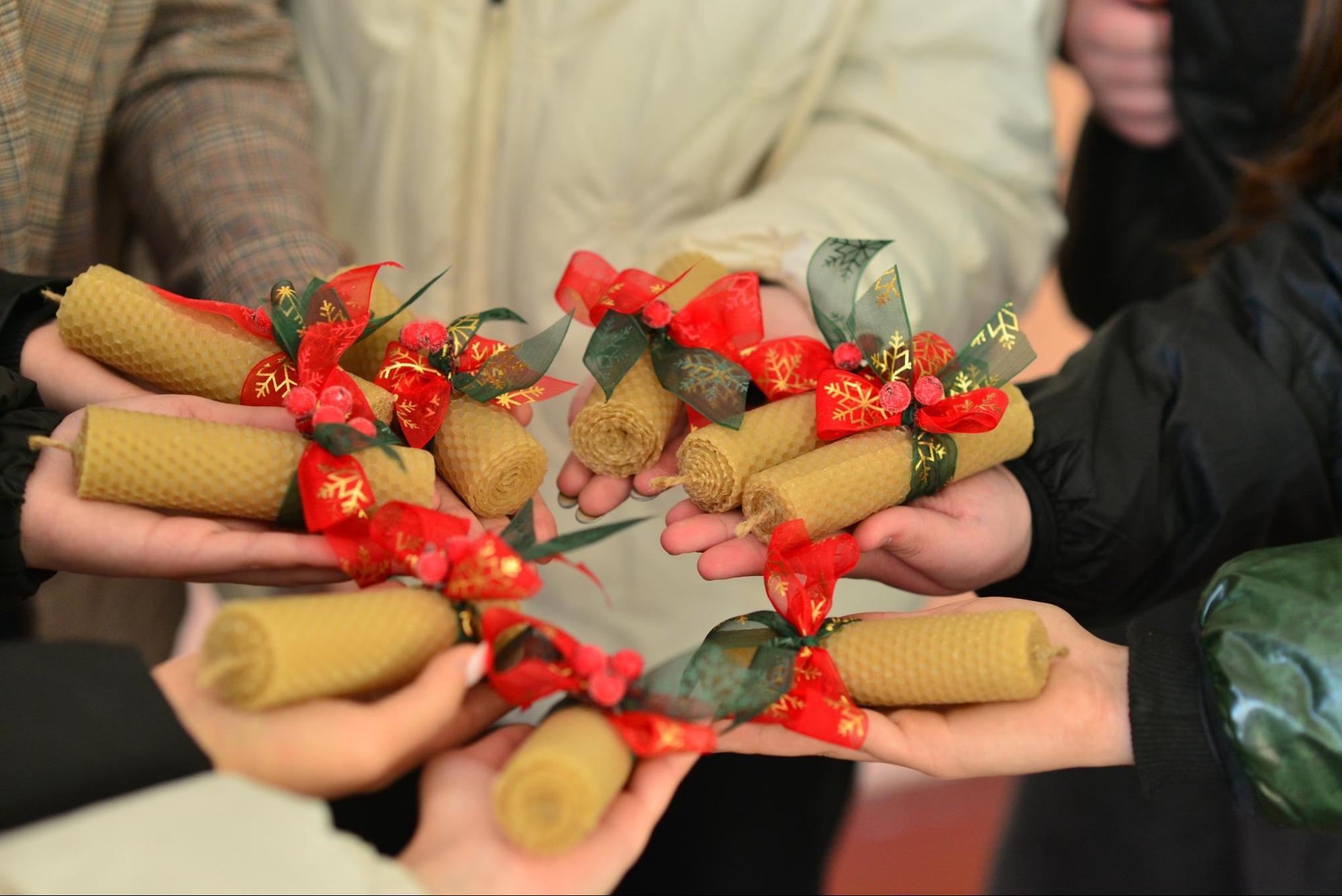
Christmas candles made of beeswax — final photo from the master class. Photo from the project archive
All the crafts made during the workshops are taken home by the participants. Often, the children become so engaged in creating their crafts that they ask for materials to make a few more candles or toys on their own. The project happily supports this initiative by providing the children with all the necessary additional materials.
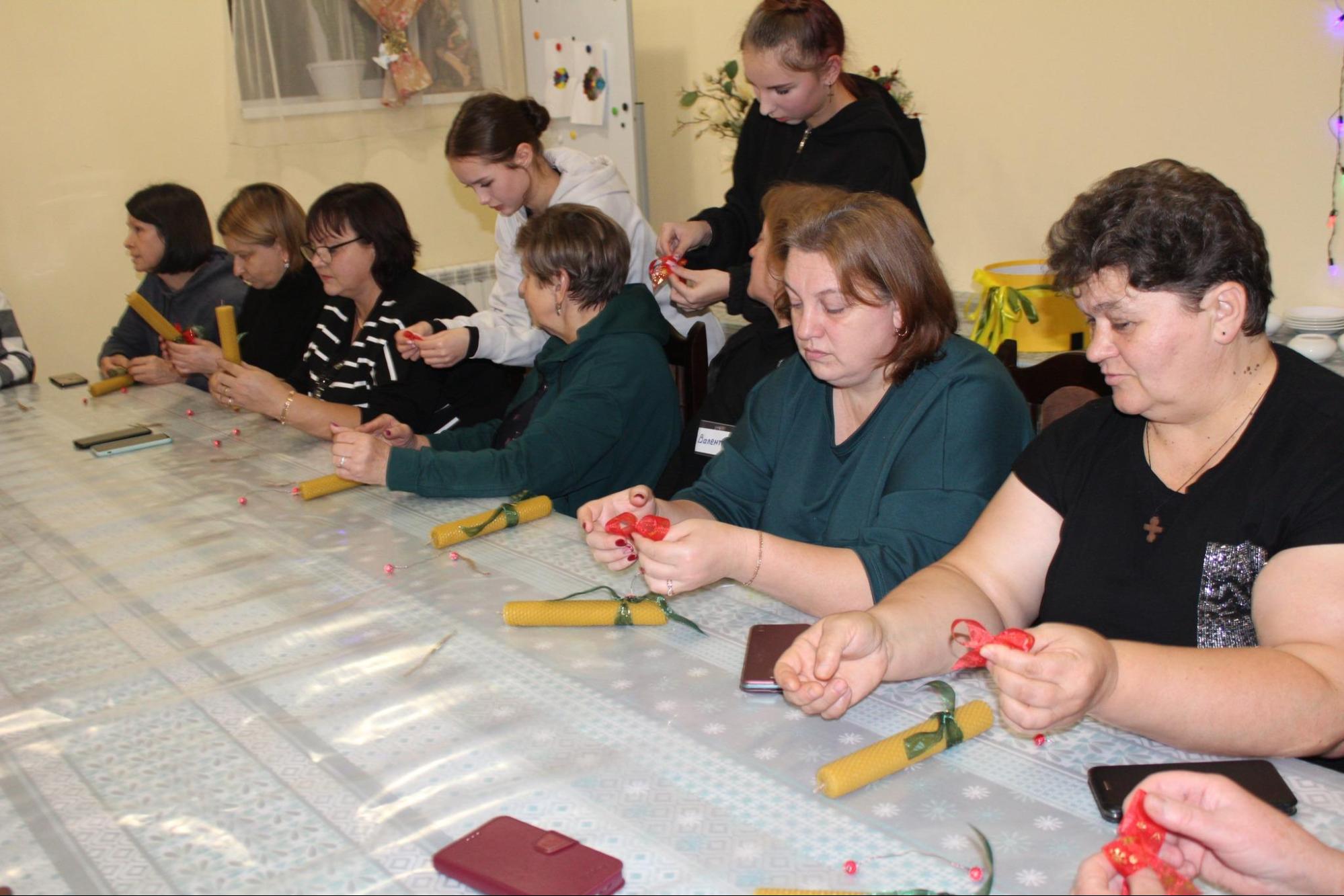
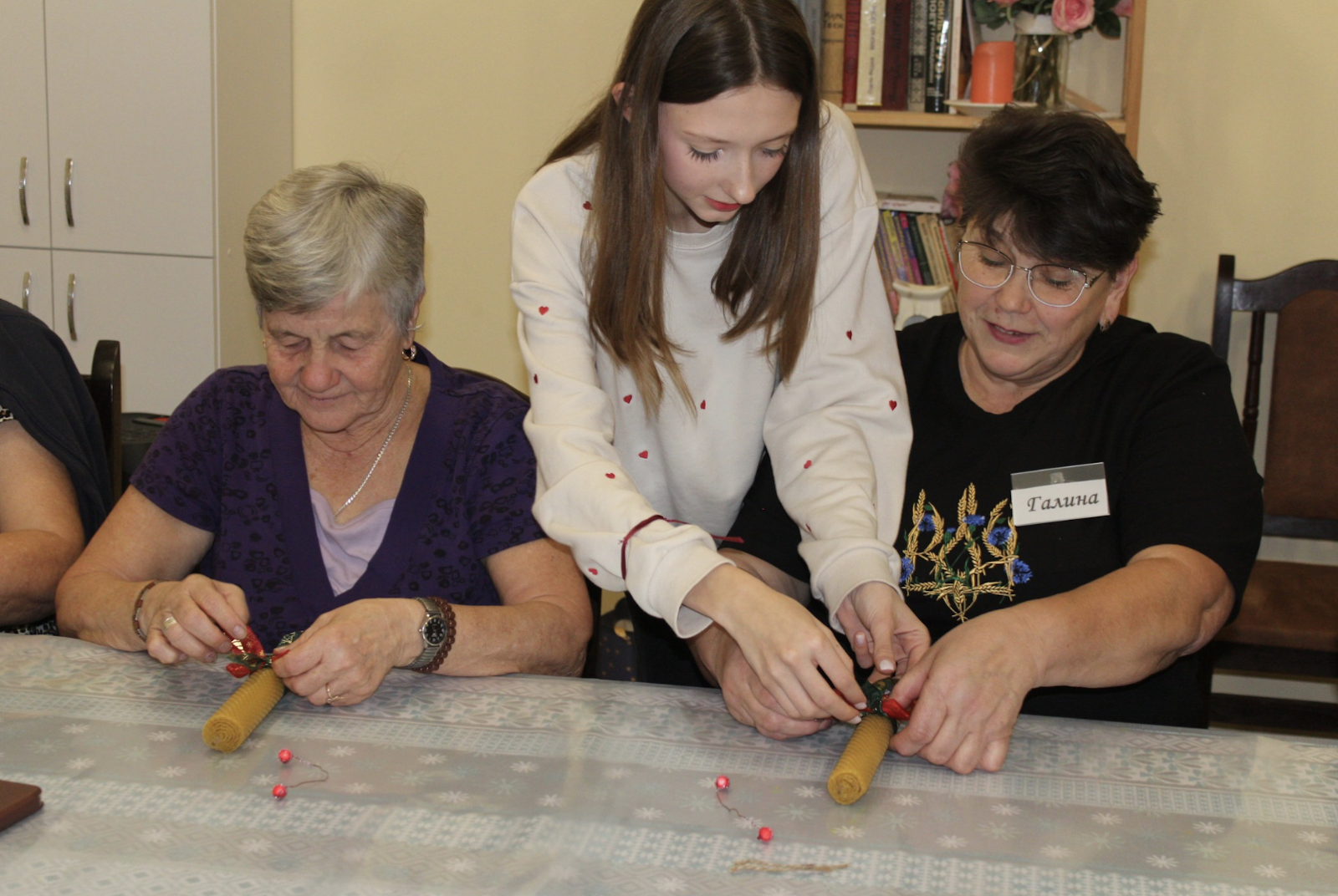
Mothers of fallen soldiers create a "candle of strength." Photo from the project archive
Another special experience for the students of Kalytianskyi Lyceum was their involvement in the "Give Hope to Mom" project, which offers psychological support and physical rehabilitation to mothers of fallen Ukrainian soldiers. The students hosted a master class for 17 mothers of fallen defenders, where they created symbolic "candles of strength" from beeswax.
"Ninth-grader Sofiia Slipchenko reflects, 'While making their candles, each mother's eyes filled with tears, smiles, and pleasant memories, and they were given an important resource for life here and now. This was an incredible feeling and the main motivation for us — knowing that our work made the people around us happier.'"
The participants of the master class were particularly moved by the involvement of the schoolgirls in the process. One of them shared, "Respect for the sincerity and kindness of the children, whose efforts made each of these master classes inspiring and emotional."
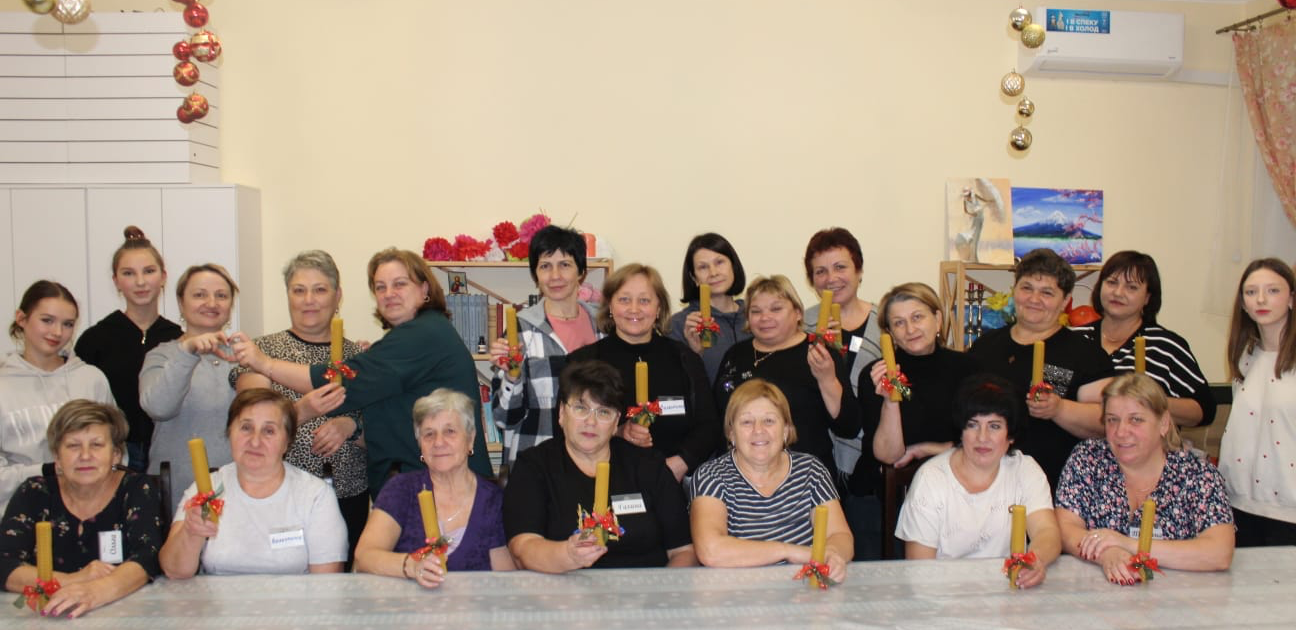
Ninth-graders Iryna Liakh, Kateryna Nemchenko, and Sofiia Slipchenko of the Kalytsia Lyceum meet with the mothers of the fallen defenders. Photo from the project archive
How to support the project?
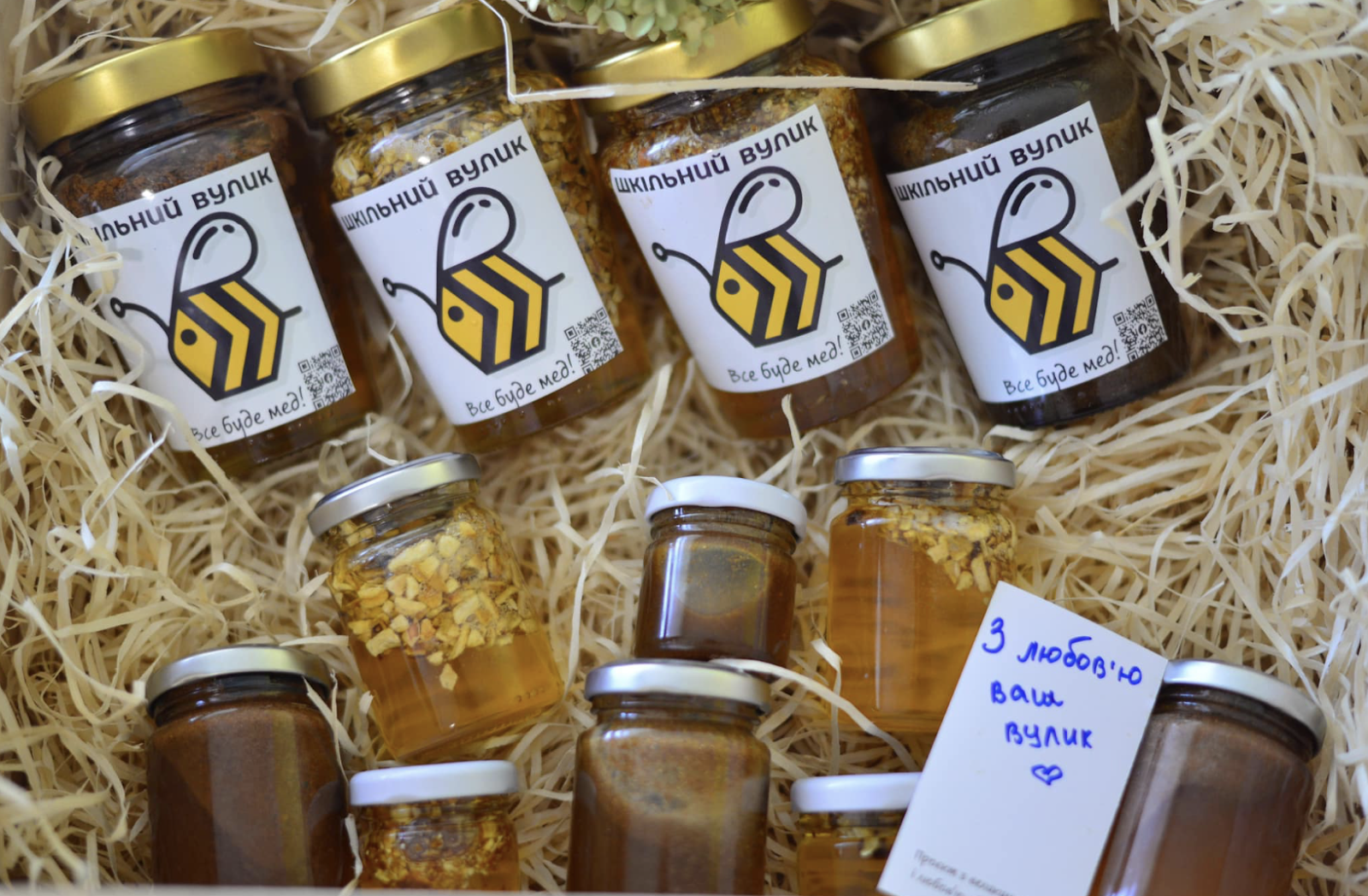
Jars of honey are products of the School Beehive". Photo from the project archive
The emotional support activities are primarily funded by the School Beehive itself. During the current season, the project participants harvested over 100 liters of honey. They decided to sell it retail through local residents, online platforms, and social networks, with 50% of the profit from each jar sold going toward purchasing beeswax, decorative ribbons, and other materials needed for the restoration workshops.
The children also eagerly respond to invitations from businesses wishing to hold similar workshops for their employees, in exchange for voluntary donations to support the project.
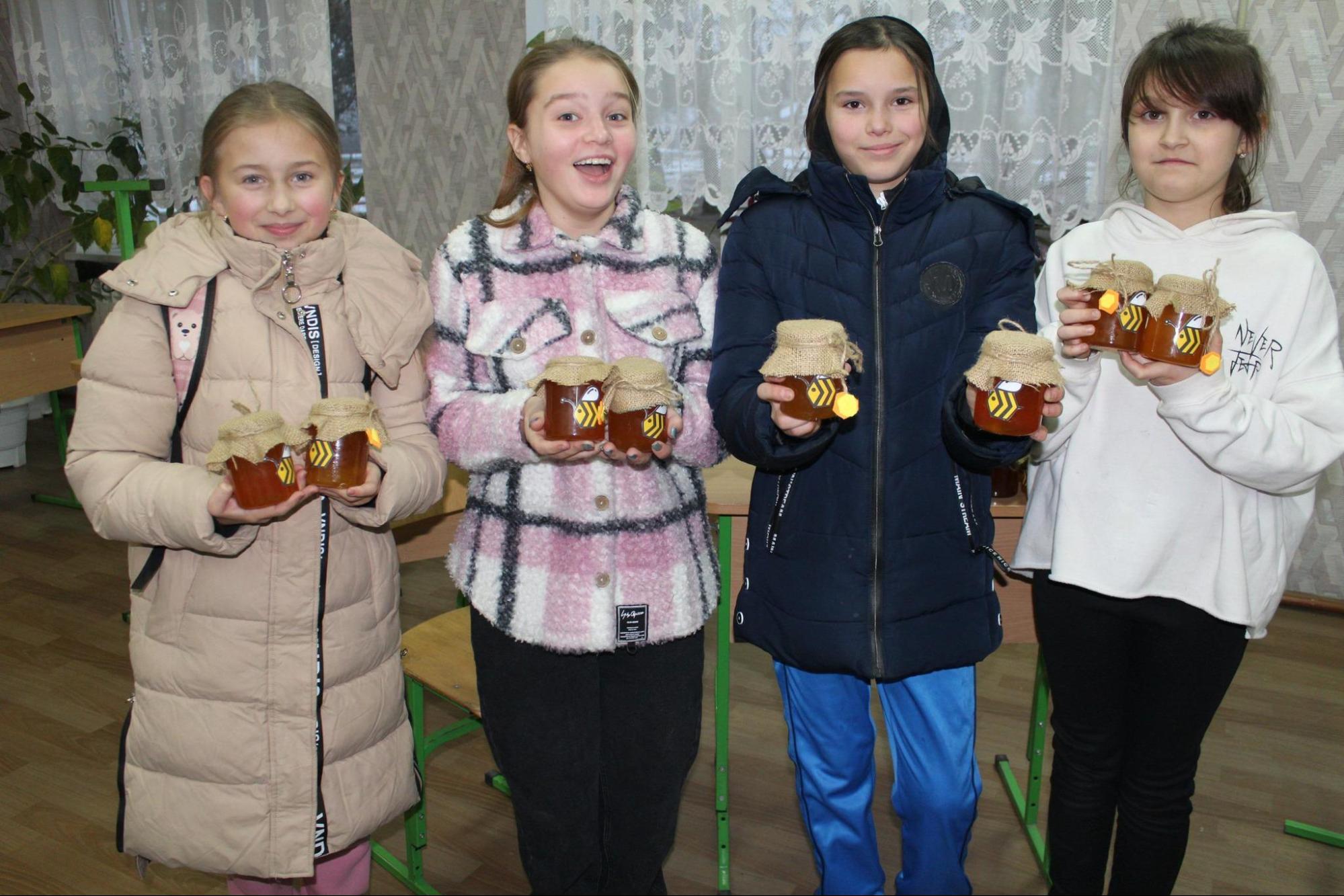
Children with jars filled with honey provided by partners. Photo from the project archive
The School Beehive also receives support from socially responsible businesses. For example, the online store Uleyна donated beeswax for making candles, which, along with honey, the schoolchildren gave to lonely retired teachers in the villages of Zavorychi and Kalyta on the eve of St. Nicholas Day. Additionally, Kharkiv entrepreneurs from NASHA TARA and the online store Beurre.ua provided the containers needed for packaging the honey.
Even more useful solutions!
What's next?
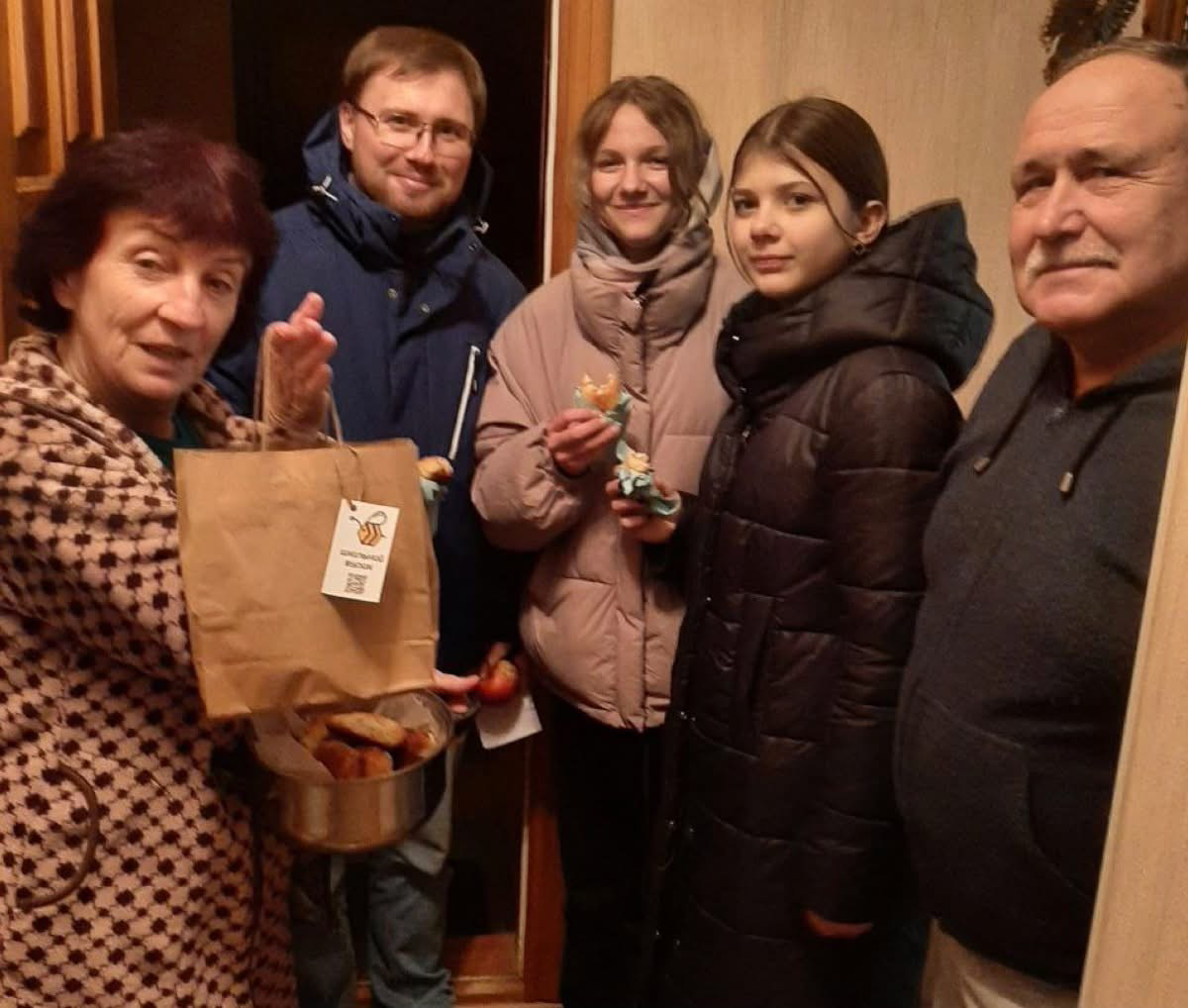
On the occasion of St. Nicholas Day, young beekeepers visited retired teachers of the Kalytianskyi Lyceum with gifts. Photo from the project archive
In 2025, the School Beehive plans to reach about 1,000 people with master classes that incorporate aromatherapy and apitherapy. To achieve this, the project is already building connections with military-civilian administrations and organizations that support children across Ukraine. A key partner in this effort is the NGO Seven Fields, which runs rehabilitation camps for injured children every summer. Additionally, there is an orphanage in the Kalytianska community, where School Beehive and its partners aim to host a one-day festival focused on mental recovery. This event will include not only beeswax-based master classes, but also opportunities for art therapy, creating fragrant wax sachets, vocal, photo, and theater therapy.
The project is also working to ensure that future master classes and mental recovery events involve entire families, recognizing the significant role that the psycho-emotional climate within families plays in a child's well-being.
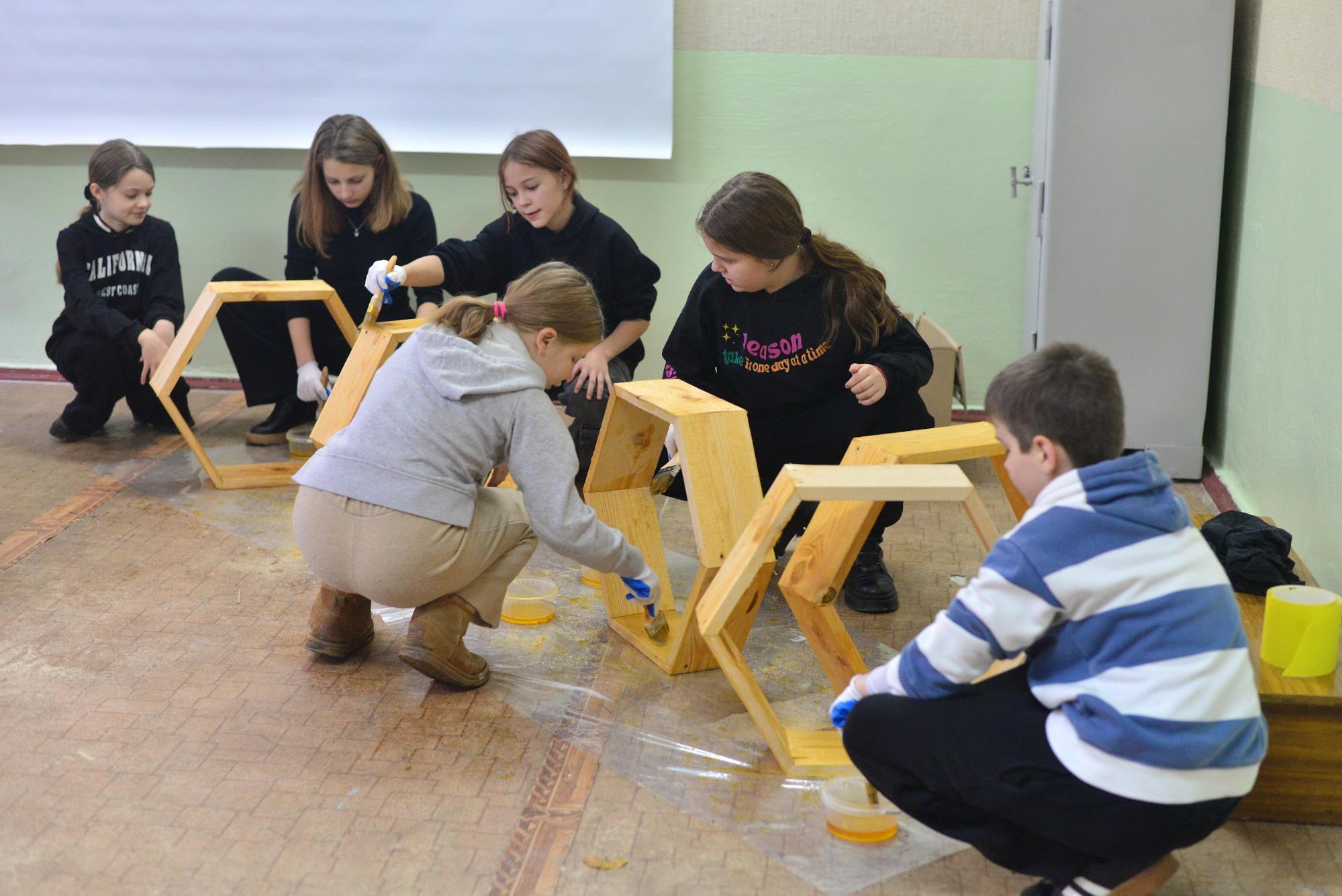
Children working on the future bee hotel. Photo from the project archive
In the fall, the School Beehive became one of the winners of a competition for non-governemtnal organizations offering services in implementing environmental projects in communities. As a result, the schoolchildren have now planned to enhance their school apiary by planting honey-bearing herbs, fragrant lavender, adding a bee hotel, photo zones, and creating relaxation areas.
With these plans, the students aim to create a unique atmosphere at the school apiary, believing that it will allow visitors to feel closer to nature. For the children involved in the School Beehive, this connection to nature is also seen as a form of therapy.
Editor: Anna Rudenko


